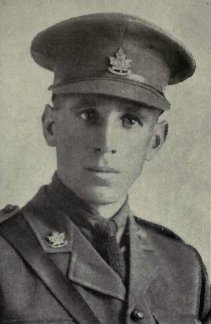Frederick Maurice Watson Harvey facts for kids
Quick facts for kids
Frederick Maurice Watson Harvey
|
|
|---|---|
 |
|
| Born | 1 September 1888 Athboy, County Meath, Ireland |
| Died | 24 August 1980 (aged 91) Fort Macleod, Alberta, Canada |
| Allegiance | Canada |
| Service/ |
Canadian Expeditionary Force |
| Years of service | 1916–1946 |
| Rank | Brigadier |
| Commands held | Lord Strathcona's Horse |
| Battles/wars | |
| Awards | Victoria Cross Military Cross Croix de Guerre (France) |
| Relations | Thomas Arnold Harvey |
Brigadier Frederick Maurice Watson Harvey (born September 1, 1888 – died August 24, 1980) was a very brave Canadian soldier. He was born in Ireland but moved to Canada. He is famous for receiving the Victoria Cross, which is the highest award for bravery in the British military. He also played rugby union for Ireland. Harvey fought in both the First World War and the Second World War.
Contents
A Life of Bravery
Frederick Harvey went to school in Ireland. In 1908, he came to Canada. He worked as a surveyor in northern Alberta. This job involves measuring land.
In 1916, Harvey joined the army. He became a lieutenant and was sent to fight in the First World War in Europe. He joined a famous Canadian cavalry unit called Lord Strathcona's Horse.
Heroic Action in World War I
On March 27, 1917, Lieutenant Harvey showed incredible courage. His unit was attacking a village called Guyencourt. Enemy soldiers were hiding in a trench. They fired machine guns and rifles, causing many injuries to Harvey's troop.
The enemy showed no signs of stopping. The fighting was very intense. Lieutenant Harvey, who was leading his troop, ran forward by himself. He jumped over the wire fence in front of the trench. He quickly shot the enemy machine-gunner and captured the machine gun.
During an attack by his regiment on a village, a party of the enemy ran forward to a wired trench just in front of the village, and opened rapid fire and machine-gun fire at a very close range, causing heavy casualties in the leading troop. At this critical moment, when the enemy showed no intention whatever of retiring, and fire was still intense, Lt. Harvey, who was in command of the leading troops, ran forward well ahead of his men and dashed at the trench, skilfully manned, jumped the wire, shot the machine-gunner and captured the gun. His most courageous act undoubtedly had a decisive effect on the success of the operations.
His brave act helped his unit win the battle. Because of this amazing bravery, he was given the Victoria Cross. This is the highest military award for courage. He also received the Military Cross and the French Croix de Guerre.
After the War
After the First World War, Frederick Harvey stayed in the army. He continued to serve with Lord Strathcona's Horse. In 1923, he was promoted to captain.
From 1923 to 1927, he taught physical training at the Royal Military College of Canada. In 1938, he became a lieutenant colonel and led Lord Strathcona's Horse. In 1939, he was promoted to brigadier. He then commanded Military District 13.
Sporting Achievements
Frederick Harvey was also a talented rugby player. He played for the Irish national rugby team twice.
His first game was in 1907 against Wales. His second and last game for Ireland was in 1911 against France. Ireland won that game 25–5.
Harvey played club rugby for Wanderers. He is one of only three Irish rugby players to ever receive the Victoria Cross. The other two were Thomas Crean and Robert Johnston. Both of them also played for Wanderers. Frederick's two brothers, Arnold and Duncan, were also great sportsmen. They both played rugby for Ireland. Arnold also played cricket and athletics for Ireland.
Later Years
Frederick Harvey retired from the army in December 1945. Even after retiring, he stayed involved with horses. He often judged competitions for hunter and jumper horses. He also served as an Honorary Colonel for Lord Strathcona's Horse from 1958 to 1966.
He passed away at the age of 91. He was buried at Union Cemetery in Fort Macleod, Alberta. In 2019, a documentary called "Mark Our Place" was made about his story and other Victoria Cross recipients from the Wanderers rugby club.
 | Isaac Myers |
 | D. Hamilton Jackson |
 | A. Philip Randolph |

